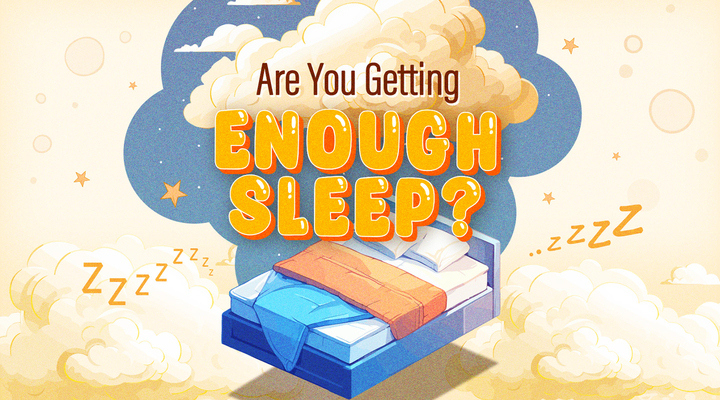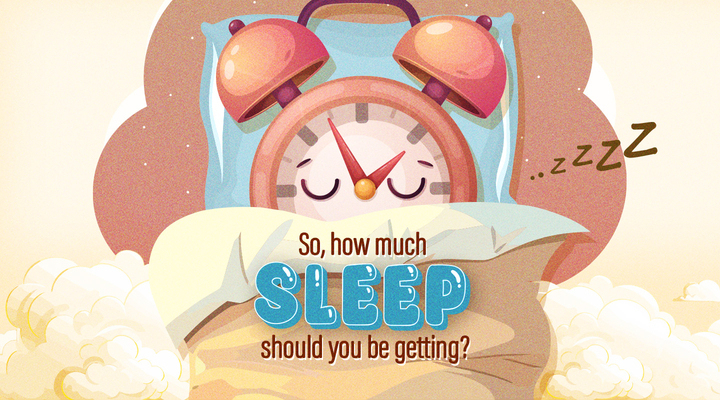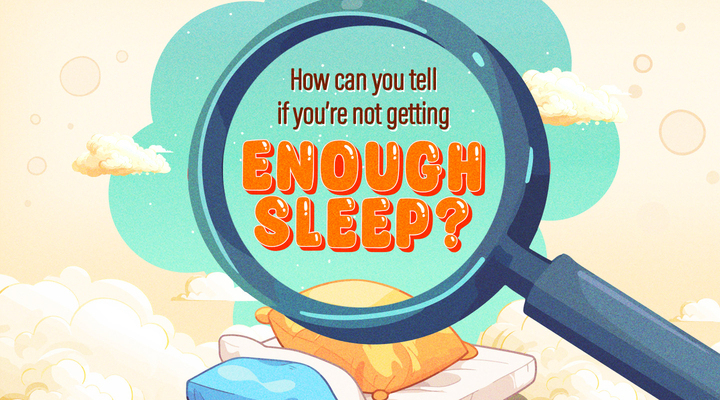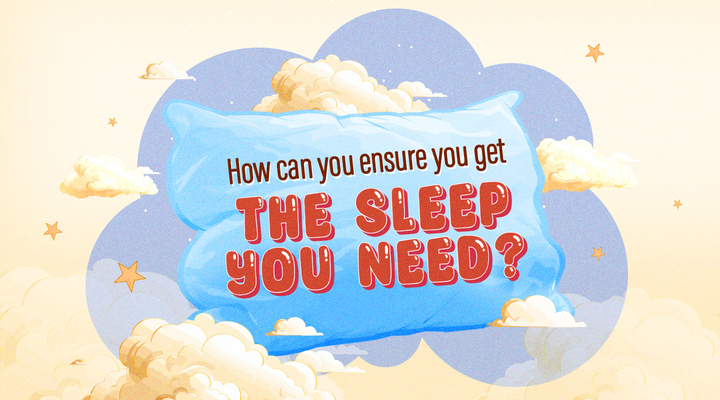Are You Getting Enough Sleep? Here’s How You Can Rest Better

Did you know that sleep deprivation has risen to the level of a public health crisis in Singapore?
A recent survey of 43 cities and the sleeping habits of its residents found that Singapore was the third most sleep-deprived city.
This can be attributed to various reasons, such as poor pre-bedtime routines, social media, and long work hours. Regardless of the reasons, sleep deprivation is still detrimental to our health.
So, How Much Sleep Should You Be Getting?

The amount of sleep a person needs depends on various factors, including age and gender. In general, most adults need 7 to 9 hours of sleep, although some may require as few as 6 or as many as 10 hours of sleep every night.
Older adults (aged 65 and older) need 7 to 8 hours of sleep each night, while new research has emerged suggesting that women may need more sleep than men.
Women are more prone to sleep disorders like insomnia, and monthly hormonal changes impact their circadian rhythm – the body’s internal clock. On average, they require an additional 20 minutes of sleep per day compared to men.
Furthermore, women in their first three months of pregnancy often require several more hours of sleep than usual. The rise in their progesterone levels in the early stages of pregnancy can cause increased tiredness, and fluctuations in blood pressure and blood sugar levels can further contribute to fatigue.
That said, sleep quality is just as crucial as sleep duration. Achieving the recommended hours of rest is beneficial only if a significant portion of that time is spent in deep sleep (or REM sleep), which is crucial for body recovery.
If you’ve missed sleep or experienced poor-quality rest in previous days, the amount of sleep you need goes up—you’ll accumulate "sleep debt", which is much like being overdrawn at a bank. Eventually, your body will demand that you start to repay the debt.
You might adjust to a schedule that limits your sleep, but the reality is that we don’t truly adapt to getting less sleep than necessary. Our judgment, reaction time, and other functions will be impacted.
How Can You Tell if You’re Not Getting Enough Sleep?

Experts say that if you feel drowsy during the day, even while doing routine activities, it’s a clear sign that you haven't had enough sleep.
Other telltale signs of sleep deprivation include needing an alarm clock to wake up on time every day and feeling groggy when you wake up in the morning or throughout the day.
Though most people require an alarm clock to wake up on time each day, this can interrupt your body’s natural sleep stages—ideally, you should be able to wake up naturally after getting the sleep you need.
If you’re sleep deprived, you may also experience forgetfulness, have trouble focusing, and sleep more on days on which you don't have to wake up early.
Studies clearly indicate that sleep deprivation is dangerous. In one study, sleep-deprived people who engaged in activities such as driving or tasks requiring hand-eye coordination performed as poorly or even worse than those under the influence of alcohol.
Dependence on stimulants like caffeine cannot fully counteract the effects of severe sleep deprivation. Moreover, it’s detrimental to your health.
The long-term effects of sleep deprivation can be devastating. It has been linked to a higher risk of various health issues, including hypertension, life-threatening cardiovascular conditions, weight gain, diabetes, decreased fertility, depression and even immune system deficiency.
How Can You Ensure You Get the Sleep You Need?

It is crucial to understand your individual sleep requirements and practise good sleep hygiene – a set of habits and practices to promote consistent high-quality sleep and full daytime alertness.
Here are some easy ways you can improve your sleep hygiene:
- Keep a set sleep schedule
Going to bed and waking up at the same time every day allows you to prioritise sleep and ensure you are getting enough rest. - Develop a nightly routine
Having a nightly routine allows your body to relax and prepare for quality sleep. Set an alarm for 30 minutes before bed to remind you to dim the lights, turn off electronics and engage in a relaxing activity. - Get at least 30 minutes of exercise every day
Exercise can alleviate sleep-related problems and help you get an adequate amount of rest. Walking is a great way to get your exercise in, but you should combine it with other activities to achieve optimal fitness.
Typically, it takes about 10 to 20 minutes to fall asleep. If you’re struggling to fall asleep within this timeframe, consider consulting your doctor to identify potential underlying health issues and explore possible solutions.
So, the next time you find yourself binging your latest Netflix obsession or endlessly scrolling on social media in the middle of the night, remember: your body and mind need their nightly recharge. Prioritise your sleep with a few mindful changes.
- POSTED ON
Sep 3, 2024
- TEXT BY
Yoganeetha Sivakumar
- PHOTOS BY
Nicholas Koh








